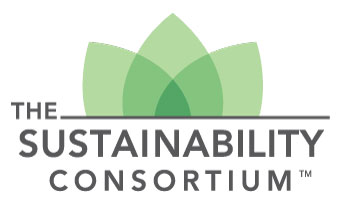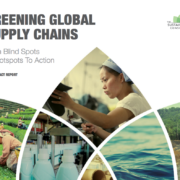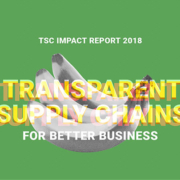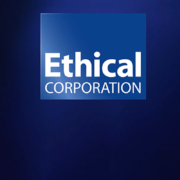We’re Thankful for…Companies Setting Climate Goals
News from Environment Guru
By Elizabeth Sturcken on November 30, 2017
Target has joined other retailers on the right path to developing a robust science-based policy for tackling greenhouse gas emissions in its operations and supply chain, creating more momentum toward action on climate by leading companies.
At COP23 in Bonn, Germany, we heard leaders at some of the world’s largest companies share their commitments to step forward on climate issues. This year we’ve also seen American companies like Mars Inc., Walmart, Hewlett Packard Enterprise and Amazon set ambitious goals during a time when our government is stepping back. At EDF+Business, we see time and time again why our world needs healthy environments and healthy businesses in order to truly prosper.
For example, recently Target announced a new climate policy and goals with the following highlights:
Reducing its Scope 1 and 2 greenhouse gas emissions by 25 percent below 2015 levels by 2025; Sourcing 100 percent renewable energy in its domestic operations; Avoiding 2 million metric tons of annual Scope 3 emissions by 2022 by focusing efforts on supplier factories producing Target-owned brands; and, Developing an additional Scope 3 goal for its supply chain within a year.
Brian Cornell, Target’s chairman and CEO, links the recent announcement to long-term goals for the company and its vision for a sustainable future:
“Target has long been committed to making our business more sustainable, which leads to a stronger, cleaner supply chain and operations, and a healthier environment for our team members and guests,” stated Cornell. “That’s why we’re setting goals to reduce our greenhouse gas footprint, and working with our industry partners, policymakers and other stakeholders to accelerate the transition to a low-carbon economy.”
Target’s announcement follows a trend we saw in a recent report by the CDP – the world’s largest annual tracker of company responses to climate change – indicating that Target is far from alone in its commitments. CDP’s sample of companies, which together represent 12 percent of global emissions, showed that almost 90 percent have already set some kind of carbon reduction target. Better yet, the number of companies with a renewable energy production target rose 36 percent, to 75 companies, from last year.
For companies looking to make these commitments, EDF and organizations like the Science-Based Target initiative (SBTi) encourage companies to develop a detailed inventory of emissions, including Scope 3 emissions from their supply chains, and then set a “science-based” target in line with the goals of the Paris Climate Agreement.
Target’s policy follows this guidance and is another critical step in the path of retail leadership on climate. They are following in the footsteps of Walmart, who set a science-based commitment a year ago. Let’s pause and acknowledge what a big deal it is that retailers are committing to reduce their own emissions directly and are taking responsibility for reducing emissions from their products and supply chains. This is a sea change from 10 years ago.
In addition to the action by Target and Walmart, CVS has committed to setting science-based goals for Scope 1, 2 and 3 emissions in line with what the science tells us needs to be done to address climate change. These leaders are putting a stake in the ground for forward-progress. At EDF, we are especially excited to hear Target CEO Brian Cornell’s commitment to working on policy to drive a low-carbon economy. This is especially needed right now when U.S. leadership in Washington is trying to take us backwards.
While EDF would like to see more specifics about the projects and programs that Target is expecting to implement to achieve their goals – especially in their supply chain – we are pleased to hear that they are working with WWF to define this.
Having worked closely over the past 25 years with companies on their sustainability strategies, EDF has found that focusing on a few key areas along the supply chain can make the greatest impact. From greening the agricultural supply chain to helping suppliers reduce factory energy use, we are working with retailers to stock their shelves with more sustainable products.
Lastly, EDF encourages Target to continue being a leader in transparency through public disclosure of its progress towards its climate goals and to work collaboratively with key stakeholders to develop and use common reporting frameworks to track product sustainability through partnerships such as The Sustainability Consortium.
All of these efforts are needed to ensure growth and resilience of business and contribute to making products safer and more sustainable – for everyone.
To learn more about how companies can green their supply chain, visit EDF’s Supply Chain Solutions Center. Be sure to look out for our “Trends in Sustainability Leadership” blog series where we interview corporate leaders, such as Stewart Leeth, vice president of regulatory affairs and chief sustainability officer for Smithfield Foods, Inc. and Linda Fisher, former DuPont chief sustainability officer who can speak to the business benefits of sustainability initiatives.




 ©2018 Arizona State University and University of Arkansas
©2018 Arizona State University and University of Arkansas 


